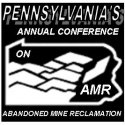Today, on the 30th celebration of MLK Day, we honor the legacy of Dr. Martin Luther King Jr. after it was declared a Federal holiday back in 1983 by President Reagan. Dr. King dedicated his life to the nonviolent pursuit of justice, equality, and unity. His leadership during the Civil Rights Movement was fundamental to the eventual ending of legal segregation within the United States.
Dr. King was born January 15, 1929 in Atlanta, Georgia and was assassinated on April 4, 1968 in Memphis Tennessee. He grew up on Auburn Avenue which was home to a relatively well off Black community and he received a solid education. His secure upbringing did not shelter him from the everyday prejudice African Americans experienced, especially in the South. Before attending college, King spent a summer on a tobacco farm in Connecticut, where he realized that the races were not segregated in the North. He later spent time at the Crozer Theological Seminary in Chester, Pennsylvania, where he learned about Gandhi’s philosophy of nonviolence, which inspired his later tactics during the Civil Rights Movement.
Following the incident on December 1, 1955 during which Rosa Parks refused to give up her bus seat to a white passenger. She was consequently arrested for violating the city’s segregation law, which led to outrage from the public and the eventual formation of the Montgomery Improvement Association, with Dr. King as its leader. In his first speech to the group, King declared:
“We have no alternative but to protest. For many years we have shown an amazing patience. We have sometimes given our white brothers the feeling that we liked the way we were being treated. But we come here tonight to be saved from that patience that makes us patient with anything less than freedom and justice.”
From that point onward Dr. King dedicated the rest of his life in the pursuit of justice and racial equality. He organized the Southern Christian Leadership Conference where he discussed race-related issues with religious and civil rights leaders across the county. King and his family eventually moved back to Atlanta where he became co-pastor of the Ebenezer Baptist Church with his father. In Birmingham, Alabama 1963 King’s campaign to end lunch counter segregation caught attention nationwide when police released dogs and fire hoses on the peaceful demonstrators. King and a number of his followers were jailed as a result of the demonstration and from Birmingham jail is where King wrote his famous letter, detailing his philosophy of nonviolence:
“You may well ask: “Why direct action? Why sit-ins, marches and so forth? Isn’t negotiation a better path?” You are quite right in calling for negotiation. Indeed, this is the very purpose of direct action. Nonviolent direct action seeks to create such a crisis and foster such a tension that a community which has constantly refused to negotiate is forced to confront the issue.”
King’s work eventually resulted in the passage of the Civil Rights Act of 1964 which authorized the federal government to enforce desegregation of public accommodations and outlawed discrimination within publicly owned facilities and places of employment. In December of the same year, King was awarded the Nobel Peace Prize.
To honor the work Dr. King has done and celebrate this day, EPCAMR staff and its AmeriCorps members will be participating in acts of service throughout the environmental justice areas of the coalfield communities of Northeastern PA. Environmental Justice areas are those designated by the state or federal government as marginalized communities which experience a disproportionate amount of environmental hazards when compared to other communities. Some of the primary causes of environmental injustices include systematic racism and intentional policies that target communities of color for undesirable land uses, such as industries that cause high levels of pollution. The environmental justice movement is a social movement that began back in 1980 and was heavily influenced by the American Civil Rights Movement. The goal of the movement is to achieve agency for marginalized communities in making environmental decisions that impact their lives. EPCAMR aids the environmental justice coalfield communities by providing educational resources on the risks and hazards associated with abandoned mine lands, such as mine subsidences and acid mine drainage, to both adults and children. EPCAMR also works with other agencies across the region on the monitoring of mine impacted sites and even the reclamation of these lands.
For Ways to Get Involved on this Day of Service
https://www.americorps.gov/serve/volunteer/mlk-day
https://americorps.gov/serve/volunteer/mlk-day/mlk-day-resources
For Additional Resources on MLK Day https://www.britannica.com/biography/Martin-Luther-King-Jr
https://nmaahc.si.edu/explore/stories/15-year-battle-martin-luther-king-jr-day
https://constitutioncenter.org/blog/how-martin-luther-king-jr-s-birthday-became-a-holiday-3











